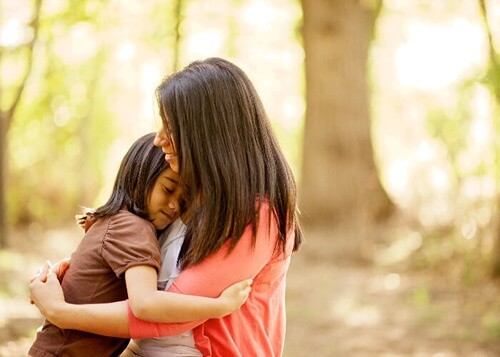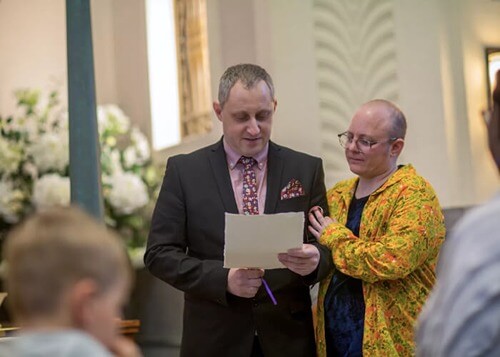> Funeral Poems > Fare Thee Well
Fare Thee Well
Author: Lord Byron
This Page Includes: Full Verses of the Poem in Text. A Recording of the Poem (Audio). A Free PDF Download for reading purposes. Free Editable Google Doc Download if you wish to make changes or to personalise the poem. The page also includes what the poem is about, structure of poem and explaining the best parts.

Fare Thee Well Poem Verses
Fare thee well! and if for ever,
Still for ever, fare thee well:
Even though unforgiving, never
‘Gainst thee shall my heart rebel.
Would that breast were bared before thee
Where thy head so oft hath lain.
While that placid sleep came o’er thee
Which thou ne’er canst know again;
Would that breast, by thee glanced over,
Every inmost thought could show!
Then thou wouldst at last discover
‘Twas not well to spurn it so.
Though the world for this commend thee–
Though it smile upon the blow,
Even its praises must offend thee,
Founded on another’s woe:
Though my many faults defaced me,
Could no other arm be found,
Than the one which once embraced me,
To inflict a cureless wound?
Yet, oh yet, thyself deceive not;
Love may sink by slow decay,
But by sudden wrench, believe not
Hearts can thus be torn away:
Still thine own its life retaineth,
Still must mine, though bleeding, beat;
And the undying thought which paineth
Is – that we no more may meet.
These are words of deeper sorrow
Than the wail above the dead;
Both shall live, but every morrow
Wake us from a widow’d bed.
And when thou wouldst solace gather,
When our child’s first accents flow,
Wilt thou teach her to say ‘Father!’
Though his care she must forego?
When her little hands shall press thee,
When her lip to thine is press’d
Think of him whose prayer shall bless thee,
Think of him thy love had bless’d!
Should her lineaments resemble
Those thou never more may’st see,
Then thy heart will softly tremble
With a pulse yet true to me.
All my faults perchance thou knowest,
All my madness none can know;
All my hopes where’er thou goest,
Wither, yet with thee they go.
Every feeling hath been shaken;
Pride, which not a world could bow,
Bows to thee–by thee forsaken,
Even my soul forsakes me now:
But ’tis done–all words are idle
Words from me are vainer still;
But the thoughts we cannot bridle
Force their way without the will.
Fare thee well! thus disunited,
Torn from every nearer tie
Sear ‘d in heart, and lone, and blighted,
More than this I scarce can die.
Still for ever, fare thee well:
Even though unforgiving, never
‘Gainst thee shall my heart rebel.
Would that breast were bared before thee
Where thy head so oft hath lain.
While that placid sleep came o’er thee
Which thou ne’er canst know again;
Would that breast, by thee glanced over,
Every inmost thought could show!
Then thou wouldst at last discover
‘Twas not well to spurn it so.
Though the world for this commend thee–
Though it smile upon the blow,
Even its praises must offend thee,
Founded on another’s woe:
Though my many faults defaced me,
Could no other arm be found,
Than the one which once embraced me,
To inflict a cureless wound?
Yet, oh yet, thyself deceive not;
Love may sink by slow decay,
But by sudden wrench, believe not
Hearts can thus be torn away:
Still thine own its life retaineth,
Still must mine, though bleeding, beat;
And the undying thought which paineth
Is – that we no more may meet.
These are words of deeper sorrow
Than the wail above the dead;
Both shall live, but every morrow
Wake us from a widow’d bed.
And when thou wouldst solace gather,
When our child’s first accents flow,
Wilt thou teach her to say ‘Father!’
Though his care she must forego?
When her little hands shall press thee,
When her lip to thine is press’d
Think of him whose prayer shall bless thee,
Think of him thy love had bless’d!
Should her lineaments resemble
Those thou never more may’st see,
Then thy heart will softly tremble
With a pulse yet true to me.
All my faults perchance thou knowest,
All my madness none can know;
All my hopes where’er thou goest,
Wither, yet with thee they go.
Every feeling hath been shaken;
Pride, which not a world could bow,
Bows to thee–by thee forsaken,
Even my soul forsakes me now:
But ’tis done–all words are idle
Words from me are vainer still;
But the thoughts we cannot bridle
Force their way without the will.
Fare thee well! thus disunited,
Torn from every nearer tie
Sear ‘d in heart, and lone, and blighted,
More than this I scarce can die.
Audio Recording
Please note the audio recording may not exactly match the text version as 'Fare Thee Well' can be tailored/personalised
Download Poem
Please note the audio recording may not exactly match the text version as 'Fare Thee Well' can be tailored/personalised
Personalised Poem
Would you like to customise this poem? You have the option to personalise it by accessing the provided link, which will direct you to Google Docs. From there, you can download the poem ‘Memories’ to your personal Google Docs account or Microsoft Word where you will be able to edit the poem however you want.
About the poem
This poem is about the speaker saying goodbye to someone they deeply loved but who has hurt them in some way. The speaker wishes to part on good terms, even if they are to be separated forever. They express a longing to be able to bare their soul to the person, to show them the depths of their love and to reveal that it was not right to reject it.
The speaker acknowledges that the world may praise the person for their actions, but it is founded on the speaker's pain. The speaker wonders why, of all people, the person had to be the one to inflict such a deep wound on them. The poem explores the idea that love can fade slowly over time, but it cannot be torn away suddenly without causing great pain.
The speaker reflects on the future, where the person and the speaker's child will have to live without the speaker. The speaker asks if the person will teach their child to say "Father" even though they will not be there to care for the child. The speaker hopes that the person will remember them and feel a soft tremble in their heart if their child resembles the speaker.
The poem ends with the speaker admitting that their pride has been shattered, and their soul is in turmoil. They know that all their words are in vain, but their thoughts cannot be silenced. The speaker is torn apart by the pain of separation, and they feel alone and blighted. Despite this, the speaker acknowledges that they cannot die any more than they already have.
The speaker acknowledges that the world may praise the person for their actions, but it is founded on the speaker's pain. The speaker wonders why, of all people, the person had to be the one to inflict such a deep wound on them. The poem explores the idea that love can fade slowly over time, but it cannot be torn away suddenly without causing great pain.
The speaker reflects on the future, where the person and the speaker's child will have to live without the speaker. The speaker asks if the person will teach their child to say "Father" even though they will not be there to care for the child. The speaker hopes that the person will remember them and feel a soft tremble in their heart if their child resembles the speaker.
The poem ends with the speaker admitting that their pride has been shattered, and their soul is in turmoil. They know that all their words are in vain, but their thoughts cannot be silenced. The speaker is torn apart by the pain of separation, and they feel alone and blighted. Despite this, the speaker acknowledges that they cannot die any more than they already have.
The Structure of Poem
The poem consists of four stanzas, each with eight lines, and the rhyme scheme of ABABABCC. The structure of the poem is relatively simple, with consistent rhyme and meter, and a clear, direct language. The tone of the poem is one of sorrow and regret, as the speaker bids farewell to a loved one. The first stanza expresses the sentiment of "farewell" and a sense of finality, even if the separation is permanent. The second stanza expresses the speaker's desire for intimacy and closeness with the loved one. The third stanza reflects on the relationship, expressing regret for any past mistakes or misunderstandings. The final stanza expresses the finality of the separation and the deep sense of loss that the speaker feels, as they acknowledge the impossibility of reconciling. The structure of the poem reinforces the speaker's feelings of sadness and loss, with the consistent rhyme and meter emphasizing the regularity of the speaker's grief.
Best Quote from Fare Thee Well Poem
This is a quote from the poem Fare Thee Well by Lord Byron
"Fare thee well! and if for ever,
Still for ever, fare thee well:
Even though unforgiving, never
‘Gainst thee shall my heart rebel."
This quote captures the bittersweet and heartbreaking nature of the poem's farewell. The speaker is saying goodbye to someone they loved deeply but who has betrayed and abandoned them. Despite the hurt and anger they feel, the speaker declares that their love will never fade and that they will never rebel against the memory of the one they have lost. It is a powerful statement of love and forgiveness, even in the face of great pain and loss.
Looking for a Funeral Director?
Contact someone today
Related Categories

See related catergories below

Funeral Poems For Boyfriend Or Husband

Homicide Or Violence Poems

Funeral Poems For Daughter Or Daughter-In-Law

Irish Funeral Poems

Sorry For Your Loss Poems

Nature Funeral Poems
Popular Poems

Discover a collection of our website's most popular poems below:
Main Categories

Are you in search of a particular genre within the realm of poetry? Explore our compilation of the most popular categories below.